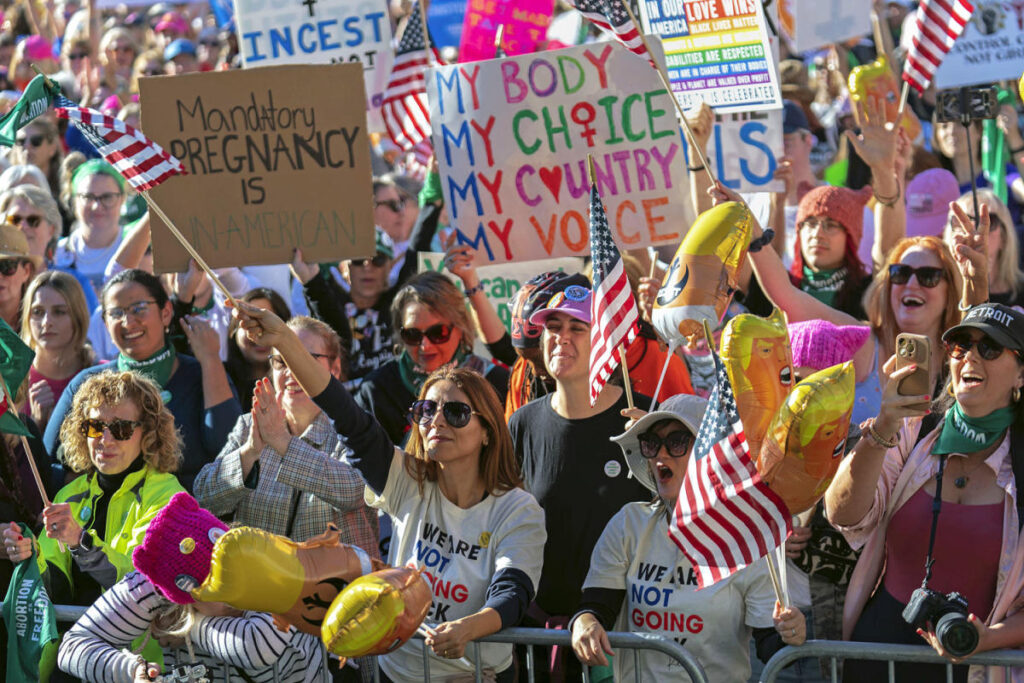Following a recent election where abortion rights featured prominently in voters’ concerns, attention is now turning toward potential shifts in policies that may emerge under Donald Trump’s forthcoming presidential administration. During his campaign, Trump expressed a preference for states to establish their own abortion regulations, diverging from earlier promises he made regarding nationwide restrictions. His stance on the issue has shifted multiple times, including a past indication of favoring a federal ban on abortions past 15 weeks and supporting a House bill to prohibit abortions nationwide after 20 weeks. Alongside Trump, Vice President-elect JD Vance has suggested a national law limiting abortion but has since echoed Trump’s approach of devolving authority to state legislatures. However, Trump’s campaign did not address specific inquiries about his current position on federal abortion legislation post-election.
Given Trump’s fluctuating views, abortion policy experts are uncertain about the future direction of reproductive rights in a potential second Trump presidency. While the prospect of passing a national abortion ban seems bleak, particularly since Trump has indicated he would not endorse such legislation, he has avoided clarifying his potential veto on a similar proposal. Instead, experts speculate that Trump’s administration could focus on measures that indirectly restrict access to abortion, particularly around abortion pills, which accounted for a significant percentage of abortions in the U.S. as of last year. Access to medication abortions, especially those provided remotely via telehealth or mail, may face new challenges as noted by policy advocates concerned about this administering method growing in popularity.
The election outcomes reflect a persistent public support for abortion rights. Numerous ballot measures aimed at safeguarding abortion access were successful in seven out of ten states, with initiatives in Arizona and Missouri successfully overturning existing restrictions. Notably, Florida’s abortion rights measure was narrowly defeated, while South Dakota and Nebraska witnessed significant voter opposition to recent constitutional amendments protecting abortion rights. These results suggest a cautious approach among some Republican lawmakers regarding any federal abortion ban, given the prominent voter sentiment advocating for continued access to abortion services.
While congressional support for a nationwide ban may be waning, experts identified alternate pathways through which Trump could impose restrictions without direct legislative action. A crucial avenue could be Trump’s appointees to the Food and Drug Administration (FDA), who might attempt to reverse regulations established during previous administrations that expanded access to mifepristone, the abortion pill. This could include reinstating in-person dispensing requirements for abortion medications and rescinding the drug’s licensing entirely, significantly altering how abortion services are accessed within the country.
Additionally, Trump’s Justice Department could opt to not defend abortion pill access against legal challenges. Current lawsuits related to mifepristone are underway in federal courts, potentially creating an environment where the administration’s non-defensive stance could allow for more restrictive legal interpretations surrounding abortion access. Efforts to enforce the Comstock Act, which prohibits sending materials meant to procure abortions, might also come into play. This could criminalize the distribution of abortion pills and medical equipment used in abortion procedures, stirring concerns about the chilling effects on healthcare providers who offer such services.
Despite these possibilities, experts like Katie O’Connor are skeptical about successfully implementing broad anti-abortion strategies through misuse of existing laws such as the Comstock Act, which could face fierce political and legal opposition. Meanwhile, proponents of abortion rights anticipate the reinstatement of barriers similar to those experienced during Trump’s first term. Policies limiting federal funding for providers to refer patients for abortion services and other previous restrictions might re-emerge if Trump’s administration reverts to earlier protocols discarded by the Biden administration. Overall, as abortion remains a hotly contested issue with widespread public backing for access, the dynamics within a new Trump administration will be watched closely, revealing critical implications for the future of reproductive rights in America.

